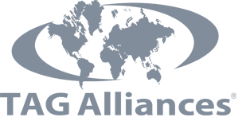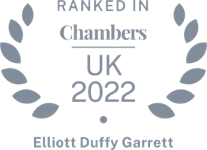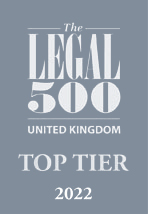Corporate Governance Challenges and COVID-19
Companies face particular challenges with the implementation of social distancing policies and the closure of all non-essential business premises, to continue to comply with their governance regimes during the current Covid-19 epidemic.
Of key concern in these governance regimes will be ensuring quorate meetings can take place whilst adhering to the evolving advice from the government. Many companies will be forced off-site with employees, directors and shareholders working from home for a continued period and clearly this has the potential to significantly disrupt decision making processes.
In the current climate, those companies will have to consider remote meetings to progress key matters and consideration should be given to the validity of such meetings. Companies will have to look to their articles of association to ascertain the rules which dictate how remote meetings should be held and if these are quorate. A number of companies will have bespoke articles and these will have to be reviewed in detail to determine the governance provisions regulating how such off-site meetings can be held. However, a large number of companies will have adopted Model Articles on incorporation and for these companies it should be a relatively simple process to establish quorum requirements for meetings held remotely.
The most recent Model Articles were prescribed under the Companies Act 2006 and are applicable to companies which are incorporated on or after the 28th April 2013 (further guidance can be provided for companies incorporated prior to the date using the model articles of prior regimes, if required). The Companies Act 2006 provides Model Articles for companies limited by shares, companies limited by guarantee and public companies. We will focus on companies limited by shares below.
Under the Model Articles for companies limited by shares, the quorum for a directors’ meeting is two (unless otherwise fixed). However, the Model Articles are generally silent as to the standard format of how meetings are held. Nevertheless, we would flag the following provisions under the Model Articles;
Articles 10 (2) & 10 (3);
- (2) In determining whether directors are participating in a directors’ meeting, it is irrelevant where any director is or how they communicate with each other.
- (3) If all the directors participating in a meeting are not in the same place, they may decide that the meeting is to be treated as taking place wherever any of them is.
As such it is possible, and generally accepted and used, that board meetings may take place over the phone. However, if this is out with the standard practice of a company, practical consideration should be given to ensuring quorum remains i.e. no issues over the phone line used to ensure the effective communication to each director and ensuring each party who forms the quorum in such a meeting votes and such vote is accurately recorded. In light of this, good governance also dictates that a copy of the minute is shared with all parties after a meeting to ensure that there is an accurate and agreed note of what has been discussed/approved.
Remote meetings are very likely to be a requirement for numerous companies reacting to the continual development in response to the Covid- 19 crisis and also for companies which may be considering availing of the coronavirus business interruption loans (CBIL) recently announced by the UK government. Lenders under CBIL will likely require standard minutes (and written resolutions for any lending underpinned by individual or corporate guarantees) to allow for the drawdown of facilities. Therefore, it is of significant importance that companies review their articles and governance regimes to ensure they can adapt to the current climate to move their businesses forward.
Please note this is a brief overview of potential governance issues arising out of the ongoing Covid-19 crisis. Given the ever evolving nature of government advice, specific legal advice should be sought from a professional advisor and tailored to your particular circumstances. If you require further information or advice, please contact kevin.mcveigh@edglegal.com or cathy.murphy@edglegal.com and we will be happy to assist.



